Latest News
Quartet meeting, great opportunity for a lasting peace in Afghanistan
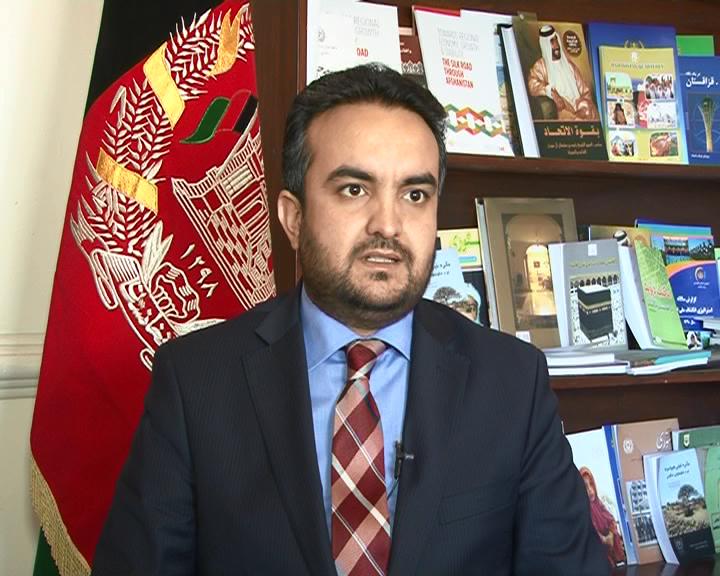
Afghanistan Ministry of Foreign Affairs (MoF) says that the quadrilateral meeting between Afghanistan, Pakistan, US and China is a great opportunity for a lasting peace in Afghanistan and its next meeting will be held in capital Kabul on Monday, January 18th.
MoF noted that the direct talks between the representatives of Afghan government and the Taliban group will be the main issue of this meeting.
“Considering the commitments of the first quadrilateral meeting and other summits, there are many hopes that we gain achievements,” said Ahmad Shekib Mustaghni, spokesman of MoF.
In the meantime, chairman of the Senate House welcomes holding the second quadrilateral meeting in Kabul but emphasizing that the demands of Afghan people should seriously be considered.
“We welcome the quadrilateral meeting in Kabul but people’s demands and the past 14 years achievements should be seriously considered and efforts for brining peace must be sustainable.
The Ministry of Interior Affairs (MoI) has also announced of taking serious measures for providing the security of the quadrilateral meeting.
“Efforts are underway that people do not face problems. We took serious measures for providing the security of the meeting,” said Sidiq Sidiqi, spokesman of the interior ministry.
Members of Monday’s meeting will be the same as the previous meeting in Islamabad; Afghan Deputy Foreign Minister Hekmat Khalil Karzai, Pakistan’s Foreign Secretary Aziz Ahmad Chaudhry, the US Special Representative for Afghanistan and Pakistan Ambassador Richard G. Olson and China’s Special Envoy for Afghanistan Ambassador Deng Xijun.
The first meeting of the Quadrilateral Coordination Committee (QCC) was held in Islamabad aimed at reviving the Afghan peace process.
The second quadrilateral meeting in Kabul come as the Taliban’s insurgency intensifies, testing the capacity of Afghanistan’s overstretched military and placing pressure on Pakistan to rein in its one-time proxies.

Latest News
Pakistan repatriates nearly 1 million illegal Afghans through Khyber Pakhtunkhwa
Among those repatriated, 230,470 were holders of Proof of Registration (PoR) cards, 71,570 held Afghan Citizen Cards, and 686,772 were undocumented Afghan nationals.
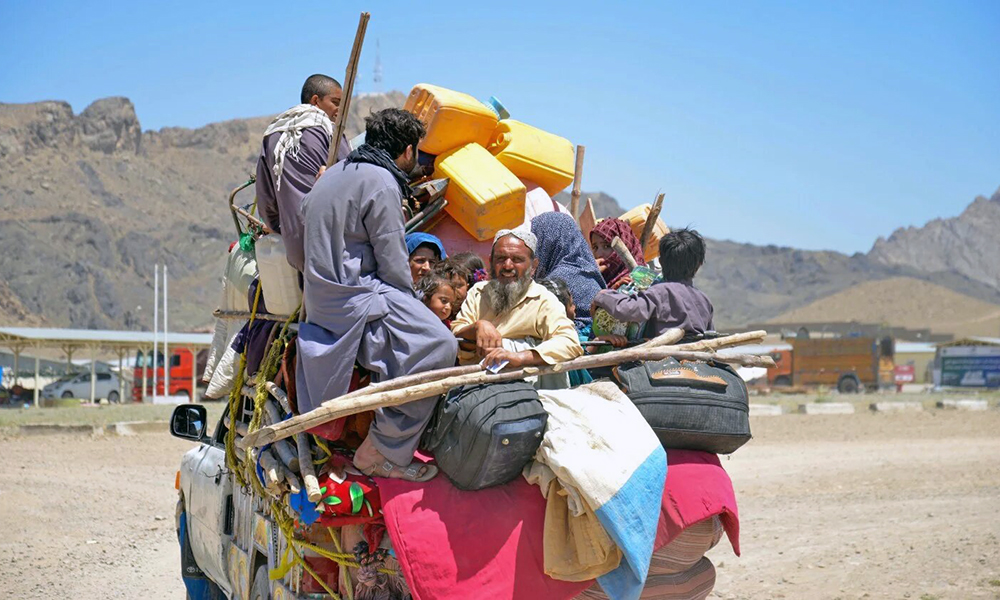
The process of returning illegal Afghan nationals through Khyber Pakhtunkhwa (K-P) continues, with a total of 988,812 individuals sent back to Afghanistan so far, according to the provincial Department of Interior and Tribal Affairs, reports Pakistan’s Tribune.
Among those repatriated, 230,470 were holders of Proof of Registration (PoR) cards, 71,570 held Afghan Citizen Cards, and 686,772 were undocumented Afghan nationals.
According to Tribune, alone on Wednesday 2,312 Afghan nationals crossed back through the Torkham, including 1,522 PoR cardholders, 277 Afghan Citizen Card holders, and 513 undocumented individuals.
Authorities in K-P have emphasized that these measures aim to manage illegal migration challenges.
Latest News
Trump administration to suspend immigrant visa processing for 75 nations

U.S. President Donald Trump’s administration is suspending processing for immigrant visas for applicants from 75 countries, a State Department spokesperson said on Wednesday, as part of Washington’s intensifying immigration crackdown.
The pause, which will impact applicants from Latin American countries including Brazil, Colombia, and Uruguay, Balkan countries such as Bosnia and Albania, South Asian countries Pakistan and Bangladesh, and those from many nations in Africa, the Middle East, and the Caribbean, will begin on January 21, the spokesperson said, Reuters reported.
A State Department cable outlining the move and seen by Reuters said the Department was undergoing a “full review” of all policies, regulations and guidance to ensure “the highest level of screening and vetting” for all U.S. visa applicants.
The cable, sent to U.S. missions, said there were indications that nationals from these countries had sought public benefits in the United States.
“Applicants from these countries are at a high risk for becoming a public charge and recourse to local, state and federal government resources in the United States,” the cable outlining the move which was reviewed by Reuters said.
The move, which was first reported by Fox News, does not impact U.S. visitor visas, which have been in the spotlight given the United States is hosting the 2026 World Cup and 2028 Olympics.
The decision follows a November directive to U.S. diplomats asking them to ensure that visa applicants are financially self-sufficient and do not risk becoming dependent on government subsidies during their stay in the U.S., according to a State Department cable seen by Reuters at the time.
“The State Department will use its long-standing authority to deem ineligible potential immigrants who would become a public charge on the United States and exploit the generosity of the American people,” said Tommy Pigott, Principal Deputy Spokesperson at the State Department.
“Immigrant visa processing from these 75 countries will be paused while the State Department reassesses immigration processing procedures to prevent the entry of foreign nationals who would take welfare and public benefits,” he added.
The cable directed U.S. consular officers to refuse any applicants whose visas have been “print-authorized” but have not been printed, or those that have been printed but have not left the consular section.
LEGAL IMMIGRATION
Trump has pursued a sweeping immigration crackdown since returning to office in January. His administration has aggressively prioritized immigration enforcement, sending federal agents to major U.S. cities and sparking violent confrontations with both migrants and U.S. citizens.
While he campaigned on stopping illegal immigration into the United States, his administration has also made legal immigration more difficult – for example, by imposing new and expensive fees, opens new tab on the applicants of H-1B visas for highly skilled workers.
“This administration has proven itself to have the most anti-legal immigration agenda in American history,” David Bier, Cato’s Director of Immigration Studies and The Selz Foundation Chair in Immigration Policy, said in a statement.
“This action will ban nearly half of all legal immigrants to the United States, turning away about 315,000 legal immigrants over the next year alone,” Bier said.
The State Department has revoked more than 100,000 visas since Trump took office, it said on Monday. The administration has also adopted a stricter policy on granting visas, with tightened social media vetting and expanded screening.
Trump, a Republican, captured the White House saying a tougher stance on immigration was needed after years of high levels of illegal immigration under his Democratic predecessor, Joe Biden.
In November, Trump had vowed to “permanently pause” migration from all “Third World Countries” following a shooting near the White House by an Afghan national that killed a National Guard member.
FULL LIST OF COUNTRIES
The list of countries that will be impacted by the suspension, according to a U.S. official, are: Afghanistan, Albania, Algeria, Antigua and Barbuda, Armenia, Azerbaijan, Bahamas, Bangladesh, Barbados, Belarus, Belize, Bhutan, Bosnia, Brazil, Cambodia, Cameroon, Cape Verde, Colombia, Democratic Republic of the Congo, Cuba, Dominica, Egypt, Eritrea, Ethiopia, Fiji, The Gambia, Georgia, Ghana, Grenada, Guatemala, Guinea, Haiti, Iran, Iraq, Ivory Coast, Jamaica, Jordan, Kazakhstan, Kosovo, Kuwait, Kyrgyzstan, Laos, Lebanon, Liberia, Libya, North Macedonia, Moldova, Mongolia, Montenegro, Morocco, Myanmar, Nepal, Nicaragua, Nigeria, Pakistan, Republic of the Congo, Russia, Rwanda, Saint Kitts and Nevis, Saint Lucia, Saint Vincent and the Grenadines, Senegal, Sierra Leone, Somalia, South Sudan, Sudan, Syria, Tanzania, Thailand, Togo, Tunisia, Uganda, Uruguay, Uzbekistan and Yemen.
Latest News
Afghanistan and Indonesia call for expanding bilateral cooperation

Saadullah Baloch, Acting Ambassador of the Islamic Emirate of Afghanistan in Jakarta, and Riki Ihsan, Director for East Asia and Central Asia at Indonesia’s Ministry of Foreign Affairs, met and discussed the expansion of bilateral cooperation in the political, economic, and diplomatic spheres, while emphasizing the friendly relations and mutual respect between the two countries.
According to a statement from the Embassy of the Islamic Emirate in Jakarta, the two sides also discussed holding meetings and official visits by senior officials of both countries in order to strengthen coordination and consolidate relations.
Baloch and Ihsan further discussed encouraging investment in Afghanistan, emphasizing the importance of creating a suitable environment and providing facilities in this area, as well as enhancing economic cooperation.
They also stressed the strengthening and further expansion of friendly relations and constructive cooperation between Afghanistan and Indonesia, and expressed their readiness to continue contacts and cooperation.
-
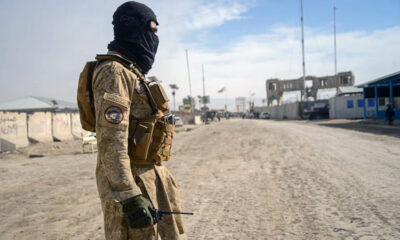
 Latest News5 days ago
Latest News5 days agoICG report says Pakistan most impacted by IEA’s return in Afghanistan
-
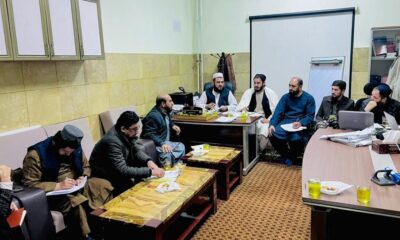
 Latest News5 days ago
Latest News5 days agoHealth Ministry holds meeting on halting medicine imports from Pakistan
-
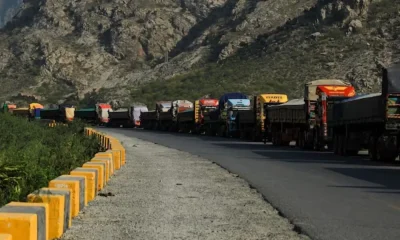
 Latest News2 days ago
Latest News2 days agoPakistan approves re-export of stranded Afghan transit trade cargo
-
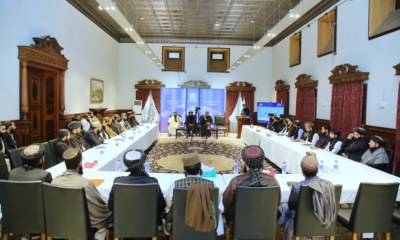
 Latest News4 days ago
Latest News4 days agoAfghan Foreign Ministry holds diplomacy training program with Qatar’s cooperation
-

 International Sports4 days ago
International Sports4 days agoATN secures broadcast rights to Carabao Cup semis across Afghanistan
-

 Business3 days ago
Business3 days agoAfghanistan–China joint market opens in Kabul
-
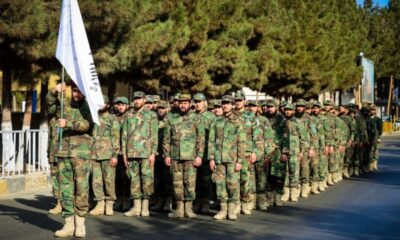
 Latest News4 days ago
Latest News4 days agoAfghanistan’s Ministry of Defense to recruit more forces
-
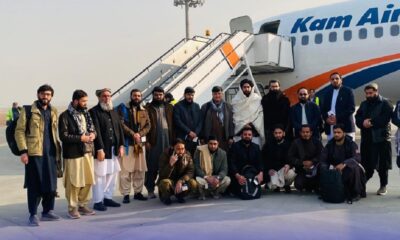
 Latest News4 days ago
Latest News4 days agoAfghanistan’s mines ministry sends technical team to Uzbekistan for training

![REACTION _ 17 - 01 - 2016 - DARI - SOT.mpg_snapshot_00.36_[2016.01.17_17.38.54]](https://ariananews.af/wp-content/uploads/2016/01/REACTION-_-17-01-2016-DARI-SOT.mpg_snapshot_00.36_2016.01.17_17.38.54-300x240.jpg)














